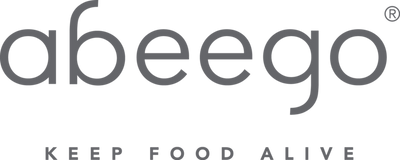Q&A with The Wandering Mollusk

Sustainability is woven into the fabric of Abeego, quite literally, from the food grade dyes we use to the sustainably sourced beeswax. We firmly believe that sustainability is woven into the fabric of our lives.
We’re located in the Pacific Northwest, which is known for seafood, so we make sure we source it from sustainable and ethical companies to keep our oceans alive for years to come.
We had a chance to sit down with Jess Taylor, co-founder of The Wandering Mollusk, a sustainable oyster catering company on Vancouver Island, to chat about all things oysters, and sustainability in seafood.
Read on to learn more of just how essential it is to bring sustainability to your plate.

Why is sustainable seafood so important?
Seafood that is ethically and sustainably harvested is a necessary practice for today, it also ensures food security for future generations. With regards to oysters, they are a truly sustainable resource. They provide a net benefit to their environments, as they happily clean the water around them and offer reefs to other sea creatures to inhabit.
What makes farming of oysters different than other farmed seafood choices?
The farming of oysters is actually more sustainable than harvesting the wild oysters. Farmed oysters don’t need to be fed, they clean the water around them as they are filters and don’t pollute the water. In fact, oysters remove nitrogen to improve water clarity, thus improving the environment around them for aquatic plants and wildlife. Farmed oysters are also tested weekly to ensure they are safe for human consumption.
Wild oysters also clarify the water and improve the aquatic environment, however, to harvest them; you have to dredge the beds, wrecking the aquatic habitat. Wild populations are best left to become reefs and build up their beds.

What are the main issues to consider in sustainable seafood?
The main issues are limiting bycatch, having a comprehensive management plan, restrict damage to the marine and aquatic habitats and most importantly fishing seafood that will not collapse under fishing pressures.
How did you get started in the sustainable seafood business?
I never had my first oyster until I was 31, but immediately became hooked. I love the mystique and flavour of oysters.
Do I eat them with sauce? Without? How much? Do I bite into it or just swallow whole oysters? There was so much to know, and this is all before considering the different varieties and styles of oysters available.
I found oysters be more of an experience that brought smiles to everyone faces, rather than merely food. Even the people who despise oysters had an experience with them. They often want to talk about why they hate them.
Slowly, I learned to shuck and take pride in what I did. I visited the farmers in the small communities and saw what a hard life oyster farming was yet how proud these farmers were of what they did for a living.
I also saw the benefits oysters provided to the smaller communities all along the coast. Oysters are important to us. Economically, as a foodie and to our island. It’s a forgotten way of living and a sustainable seafood choice that can feed the world while providing a high protein food security.
These sea creatures have mythical lore going all the way back to the natives and Greek empires. They amaze me how they taste so good with a bottle of Chablis or simply with someone to share them.
I knew I wanted to inspire people to be as excited as I am about oysters, so decided to start a small catering company. Four years later, I have not looked back. I’m still hooked.

What does Keep Food Alive mean to you?
Keep Food Alive means connection. It’s about connecting with the farms and communities where your food is grown, and learning where your food comes from.
It’s vital for us to be attached to the farmer, know our farmers and spend time with them. The stronger our relationship with the farmer the more we can infuse the customers’ experience by re-connecting them back to the farmers and the farm where the oysters originated.

Follow The Wandering Mollusk on Instagram or Facebook learn more about their story, sustainability and seafood. Look for sustainable seafood certifications and programs in your area to learn more about sustainable seafood practices.



Leave a comment